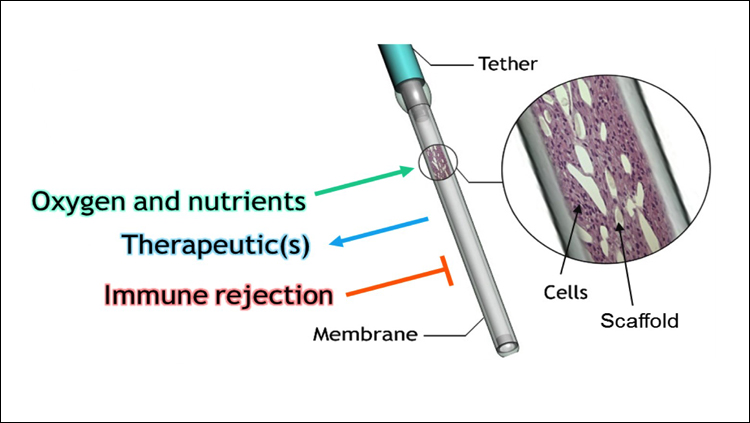Implantable Device Curbs Seizures and Improves Cognition in Epileptic Rats

A protein-secreting device implanted into the hippocampus of epileptic rats reduces seizures by 93 percent in three months, finds preclinical research published in JNeurosci. These results support ongoing development of this technology and its potential translation into a new treatment for epilepsy.
Motivated by an unmet need for effective and well-tolerated epilepsy therapies, Giovanna Paolone and colleagues of the University of Ferrara, Italy and of Gloriana Therapeutics, Inc. (Providence, RI) investigated the effects of the Gloriana targeted cellular delivery system for glial cell line-derived neurotrophic factor (GDNF) — a protein recent research suggests may help suppress epileptic activity.
In addition to quickly and progressively reducing seizures in male rats — by 75 percent within two weeks — the researchers found their device improved rats' anxiety-like symptoms and their performance on an object recognition task, indicating improvement in cognition.
The treatment also corrected abnormalities in brain anatomy associated with epilepsy. These effects persisted even after the device was removed, indicating this approach may modify the disease progression.
Article: Long-Term, Targeted Delivery of GDNF From Encapsulated Cells is Neuroprotective and Reduces Seizures
Corresponding author: Giovanna Paolone (University of Ferrara, Italy), giovanna.paolone@unife.it or giovanna.paolone@univr.it (Current address: University of Verona, Italy)




















